Doctors Of Madness - Interview
by John Clarkson
published: 6 / 11 / 2019
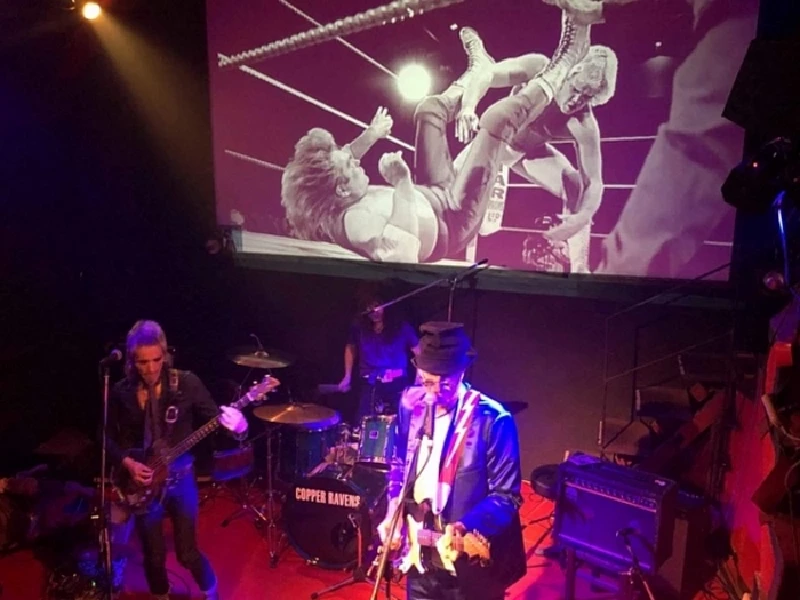
intro
Richard Strange, the frontman with influential cult band Doctors of Madness, talks about 'Dark Times', the group's first album in over four decades, which was inspired by the present political situation and world crisis.
“Doctors of Madness were always a political band,” frontman Richard Strange says to Pennyblackmusic in an interview. “We weren’t into sloganeering and singing songs like ‘White Riot’ or ‘Anarchy in the UK’, but we were always fascinated by control and propaganda. I was inspired by William Burroughs, that idea of mind control, of cynical manipulation of the population, of how advertising and the media could be used to brainwash people. That was all the stuff I was interested as a songwriter, even back then in 1975/1976, and I still am.” Described by ‘The Guardian’ in 2017 as “the missing link between Bowie and the Sex Pistols,“ Doctors of Madness combined a stomping glam rock sound with a skewed angularity and the confrontation of the coming punk revolution. First formed in 1974, the South London-formed band released three albums, ‘Late Night Movies, All Night Brainstorms’ (March 1976), ‘Figments of Emancipation’(October 1976) and ‘Sons of Survival (March 1978). Songs were discordant and experimental and sometimes ran for over fifteen minutes, and, while they developed a small, fanatical following, they drew no mainstream success and broke up in mid-1978. In the years since then, their reputation has grown and they are now seen to be an important, seminal act. Strange has gone on to work as a solo artist, an actor, a writer, a much-in-demand lecturer and a Burroughs scholar. Doctors of Madness finally reunited in 2014 when much of the original line-up played a set at ‘Language is a Virus from Outer Space’, a multi-media centenary celebration of Burroughs that Strange was the curator for at the Royal Festival Hall in London. He has since gone on to resurrect Doctors Of Madness with other musicians for other shows and tours of the UK and Japan. 2017 saw the release of ‘Perfect Past’, a box set on Cherry Red Records, which compiled together all three early albms plus extra tracks. Now there is a new album, ‘Dark Times’, the band’s first in forty-one years. Tracks like ‘So Many Ways to Hurt You’, ‘Make It Stop’, ‘Sour Hour’, ‘This is How to Die’ and the almost ten minute title track provide a bleak commentary on the current world crisis with its fake news, self-serving and lying politicians and world leaders, rising ultra right wing nationalism and environmental Armageddon. It offers no easy solutions, but its songs have a swaggering sound and are punchy and multi-layered, Strange’s strident vocals are matched with a Greek chorus of backing singers, and the large-in-sound guitars and drums arcombined with weeping violins and strings. It is as if Doctors of Madness are performing their way out of chaos. In conversation with Pennyblackmusic, it becomes clear that ‘Dark Times’ is an album that Richard Strange had to make and that has given him a personal sense of redemption. PB: What was the start for this new Doctors of Madness record? RICHARD STRANGE: Last year I was very, very ill, and, while I have been given a clean bill of health now, I thought I might not be here for very much longer. I had still not done the record that I would like to be known for and I started writing furiously, furiously being the active word because I was furious at what was being done to our world and the world that we are leaving behind for our kids. It is a rotten old place at the moment, not just with the local difficulties that we are having here in the UK but in America, Brazil and Hong Kong, and, of course, with all the environmental issues that are not being dealt with as well. It is horrendous. It is a poisoned chalice that we are passing on, and I thought I might not be able to change anything, but I may as well register my opposition and protest at what is being done and to say not in my name. Once I had done eight songs I sent them to my old friend John Leckie, who had produced ‘Figments of Emancipation’, the second Doctors of Madness album at Abbey Road in 1976. That was the first production he had ever done, and obviously since then he has gone to work with the Stone Roses, Simple Minds, the Skids and Radiohead. I had always stayed in touch with John. He is a good mate, and I am delighted with the success he has had. So, he said, “Send them to me,” and he got back in touch with me the next day and said, “These are brilliant. We have got to make this album. How much money is there?” And I said, “Nothing” (Laughs). He said, “I thought that might be the case,“ and he found us a studio which he got really, really cheap that belonged to Barrie Barlow from Jethro Tull, who has a residential studio out in Henley in Oxfordshire. I got my two Japanese musicians, Susumu Ukei who plays bass and Mackii Ukei who plays drums, over from Japan, and who I have played with for twelve years, and we went into the studio and we recorded a lot of it live, some with sequencers, and then a little bit of magic happened. People heard that I was making this record, and they got in touch with me and said that they wanted to be on it. Joe Elliot from Def Leppard said, “We used to come and see every Doctors of Madness gig in Yorkshire. I want to be your backing vocalist,” so he is on six songs. Sarah-Jane Morris from the Communards is on five. Terry Edwards, who plays with PJ Harvey, Nick Cave and Madness, and who I have worked with a lot before, said that he wanted to be on it as well, and Steve Bolton, who plays guitar for Paul Young and played with Scott Walker, is on it also. I am really, really lucky. These people all stepped up. They came to Oxfordshire one day at a time, and just did their stuff. John said, “Do you mind if I take this way and mix it? Obviously if there is anything that you want to change we can do it together. I have got an idea for the sound of this record.“ And I said, “I would love you to do that. I really trust you. That is why I asked you to become involved in the first place.” Mixing is such an art. It is such a craft. Sometimes too many cooks spoil the broth. Everyone hears things differently, but if you get one person like John, who has been doing it for fifty years, there is a good chance that he is going to get a good sound for you (Laughs). PB: What do you think that he brought above all to ‘Dark Times’? RS: I think that he brought a cinematic quality but also a subtlety to the sound . There is so much detail in those recordings – the light and the dark, the loud and the quiet, the layering up of voices, the guitars and the percussion, and the brooding drones and violins going on in the background. They are all very subtly placed. PB: It is epic in sound at one level but it is also minimal as every instrument has a place and purpose. RS: Exactly. I also tried to do the same with my songwriting. I tried to strip it down so that in a way it becomes thematically more complex but lyrically less so. I am less scared of repetition than I used to be - a lyrical idea, a chorus line, something which is going to be strong and can take repetition rather than thinking every word has got be a new thought. It led to it being too dense, too over –complicated with some of the Doctors Of Madness material in the past, and I wanted there to be a directness to these songs, which is why the titles are quite direct –‘Dark Times’, ‘Make It Stop’, ‘So Many Ways to Hurt You’, ‘Sour Hour’. As I say, I am ashamed of what is happening out there. I hate what is going on at the moment, and this is my observation and response to the last three or four years of politics, and to the way in which people have pillaged the Earth and put so little back in terms of resources and in terms of care for generations to come. I am very aware that there is not a lot in the environment for politicians, as there is so much involved in changing things around so that by the time it is showing even a modicum of benefit to the planet they are long gone. So, they don’t get the glory. They don’t get the kudos. Everyone likes a short term fix, and we all say, “Oh, we’ll put a penny on the price of a carrier bag. That will fix it,” and, of course, on this occasion it won’t and it is not enough. PB: You said in your memoirs about your first album, ‘Late Night Movies, All Night Brainstorms’ that you “wanted to make an album that would contain, reflect and mutate everything I had ever felt, ever experienced in my twenty-four years. I wanted it to reflect every joy, every disappointment, every grudge and every resentment. I wanted it to be full of bitterness, desolation, alienation, bile and fury.” Did you set out with a similar blueprint for ‘Dark Times’? RS: I suppose as I am older I am mellower but no less angry. I am also I hope wiser. I am a more experienced musician, and I know that there is also more than one way to skin a rabbit. I wanted to have that bile, that anger, that resentment, but I also thought that it is not appropriate for me to pretend that I am eighteen or twenty-five years old anymore. This is a record for grown-ups and I hope that kids get into it as well, but this is an album that should have a label that says ‘Caution! Adult content.’ It is not providing easy solutions. It is not providing two-dimension observations of the world, but is a world that I have lived in for 68 years and have drawn some conclusions about. You can pretend to be making a political album by turning everything up to eleven and screaming at 150 rpm, or you can take a slightly more measured approach and have a more reasoned narrative to your songs. I think that is what I have done here. PB: For all its bleakness and despite its title, ‘Dark Times’ doesn’t seem to be an album totally devoid of hope. RS: No, it is not. I have got kids, and I teach kids, and I have got hope for the next generation. The next generation is a very anxious, troubled and risk-adverse generation in many ways. I think what happened is politics did miss a generation, but I don’t think that it is missing this generation. This generation is genuinely concerned with Brexit, the environment, with women’s issues, with Black Lives Matter, with gender issues a lot as well, so there is a lot of energy out there that is being put into protest, into opposition, into resistance. I have got great respect for Greta Thunberg, for example. She is a sixteen-year old kid, but I say ‘kid’ with great admiration. She has obviously got immense problems with autism and being on the spectrum, but that comes with courage and an ability to articulate in a foreign language in a foreign country about the global crisis that is happening. I think that that is fantastic. This fills you with hope surely. PB: The cover of ‘Dark Times’ shows a black bird and a white bird flying into each other. What does that symbolise to you? RS: It is hope and fear. It is past and future. It is good and bad. It is resolution and destruction. Those two birds together are the two sides of the human personality, our ability to be incredibly cruel but to be incredibly kind, to be incredibly empathetic but to be incredibly selfish. There is a duality which is at the flying wheel of the human condition and out of danger, out of stress comes resolution, comes conflict, comes redemption, comes goodness, comes empathy. PB: How did you become involved with Japanese duo Sister Paul who have been playing bass and drums for you in recent years ? RS: What happened was about twelve or thirteen years ago I got a request from Japan to re-release all the Doctors of Madness material, none of which had ever been released there. So, I sent the record company over all the masters, and they said, “Would you do a tour?” and I said, “To be honest I haven’t seen the rest of the band for twenty odd years. It is a lot of work and a lot of expense putting together a show, especially if it just for three or four dates.” So, I told them I would come with one musician. It wasn’t someone from Doctors of Madness, but someone I have worked with a lot, David Coulter, who is a multi-instrumentalist and who played with the Pogues and Test Dept and who I have played with many times. David and I started getting together a programme of Doctors of Madness songs to go to Japan, and then I got a call saying, “We have got some good news for you. We have just found a Doctors of Madness tribute band to do the tour with you”, and I laughed and said to them, “I don’t want to even hear them. It is just too absurd” (Laughs), but I agreed to work with them. I came over with David, thinking to myself that if they were terrible I would work with them on quarter of an hour of material and David and I would do the rest, but anyway we got there, invited them to rehearsal and they were brilliant. They knew every song that I had ever written better than I did. They played them with a great precision and skill and energy and with great fondness, and we put together an hour and a half long show. They knew how to play everything, and from then on Susumu and Mackii have been my go to musicians. They know all the songs. They get where I am coming from. They get what I am about. They have got their own band, so they are not dependent on me for their lives which is a lovely situation to be in. They are an absolute joy. When they come to London, they stay with me as family, and my family also love them. They are good people. PB: Who else is in Doctors of Madness now? RS: Right now the core five-piece is Susumu and Mackii, myself, the violin and keyboard player Dylan O Bates and my stepdaughter Lily Bud, who is a protest singer in her own right and works a lot with Sarah Jane Morris and the Band of Holy Joy and does her own records too. That is the five-piece that will go out - and we will also have guest appearances - when we next tour the UK in the New Year. PB: Doctors of Madness had little impact outside cult circles in the 70s, but are now recognised as being one of these bands like the Velvet Underground who are now seen to be pioneering. They failed at the time. Do you see them in hindsight now as a failure or a success? RS: History and hindsight are great things. When ‘The Guardian’ did a piece on the Doctors of Madness, their quote was that we were “the missing link between David Bowie and the Sex Pistols,” which I think is probably true. Obviously in 1975 or 1975 everyone was much too close to it. What was Bowie doing at that time? ‘Young Americans’ or ‘Low’? Which David Bowie? The Pistols didn’t even exist in the public consciousness. No one was going to make that comparison at all then or be able to conceptualise that concept, but thirty years later it is clear. The Sex Pistols supported us. I was a David Bowie fan, a Roxy Music fan and so forth. I didn’t know that we were “the missing link between David Bowie and the Sex Pistols” until some time later. You need that time, that distance to properly contextualise things. Popular culture moves so quickly, and some things which look like they are huge at the time turn out to be absolutely meaningless. Some things like the Velvet Underground and I hope Doctors of Madness seem very niche and cult at the time, but turn out extraordinarily significant. A number of people have since told me that Doctors of Madness was their favourite band. Whether it was the Damned or Vic Reeves or Spiritualised or Def Leppard, that is a lot of ground that you are travelling there. PB: Final question! You are just about to tour Japan with Doctors of Madness, and will be doing a short tour at the end of September with an all-star band performing the songs of Lou Reed. What are your plans after that? RS: I have got a book on the go, which I started a few years ago, a novel which is a sort of psychological thriller set around the contemporary art world and I am working on that. I work a lot with Johny Brown from the Band of Holy Joy doing theatrical things. I teach and i have been bitten by the Doctors of Madness bug again, so I am going to be writing some more material. That world is not about to go away, so I will be out there marching the streets, waving my placard (Laughs) and screaming my anger. PB: Thank you.
Band Links:-
https://www.facebook.com/TheDoctorsOfMadness/https://twitter.com/madnessdoctors
http://www.richardstrange.com/music/doctors-of-madness/
https://en.wikipedia.org/wiki/Doctors_of_Madness
Picture Gallery:-
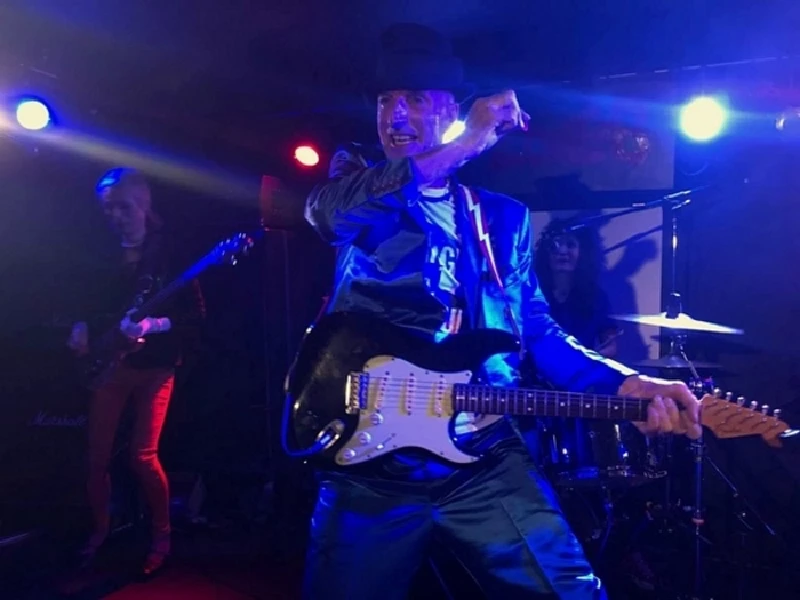
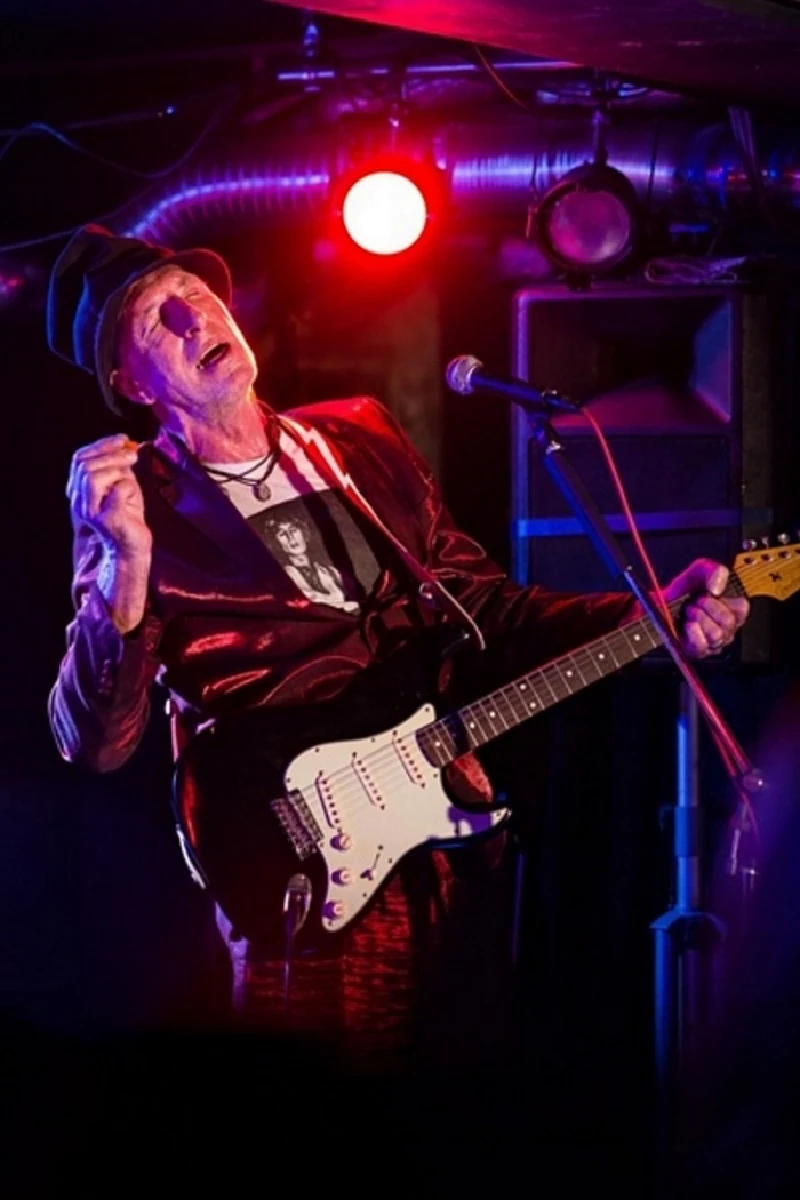
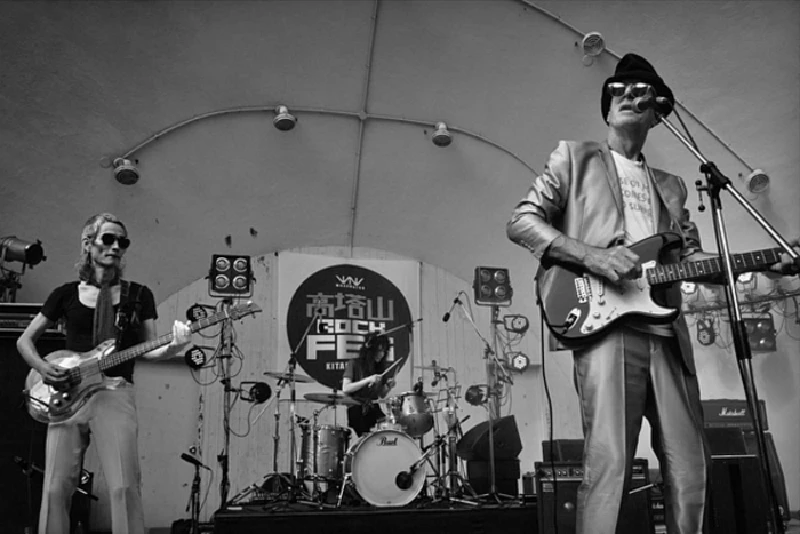
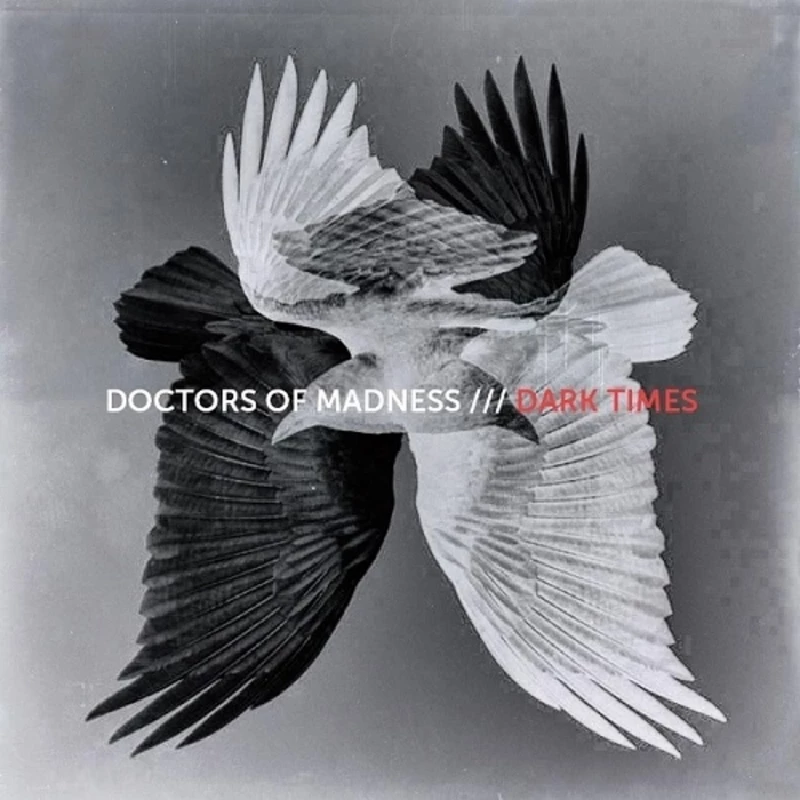
most viewed articles
current edition
John McKay - InterviewRobert Forster - Interview
Spear Of Destiny - Interview
Cathode Ray - Interview
Fiona Hutchings - Interview
When Rivers Meet - Waterfront, Norwich, 29/5/2025
Carl Ewens - David Bowie 1964 to 1982 On Track: Every Album, Every Song
Chris Wade - Interview
Brian Wilson - Ten Songs That Made Me Love...
Shrag - Huw Stephens Session 08.12.10 and Marc Riley Session 21.03.12
previous editions
Heavenly - P.U.N.K. Girl EPBoomtown Rats - Ten Songs That Made Me Love....
Allan Clarke - Interview
Oasis - Oasis, Earl's Court, London, 1995
Manic Street Preachers - (Gig of a Lifetime) Millennium Stadium, Cardiff, December 1999
Barrie Barlow - Interview
Pixies - Ten Songs That Made Me Love...
Beautiful South - Ten Songs That Made Me Love...
Trudie Myerscough-Harris - Interview
Dwina Gibb - Interview
most viewed reviews
current edition
Peter Doolan - I Am a Tree Rooted to the Spot and a Snake Moves Around Me,in a CircleGarbage - Let All That We Imagine Be The Light
Vinny Peculiar - Things Too Long Left Unsaid
Vultures - Liz Kershaw Session 16.06.88
John McKay - Sixes and #Sevens
Little Simz - Lotus
HAIM - I Quit
Morcheeba - Escape The Chaos
Pulp - More
Lapsley - I'm a Hurricane, I'm a Woman In Love
Pennyblackmusic Regular Contributors
Adrian Janes
Amanda J. Window
Andrew Twambley
Anthony Dhanendran
Benjamin Howarth
Cila Warncke
Daniel Cressey
Darren Aston
Dastardly
Dave Goodwin
Denzil Watson
Dominic B. Simpson
Eoghan Lyng
Fiona Hutchings
Harry Sherriff
Helen Tipping
Jamie Rowland
John Clarkson
Julie Cruickshank
Kimberly Bright
Lisa Torem
Maarten Schiethart